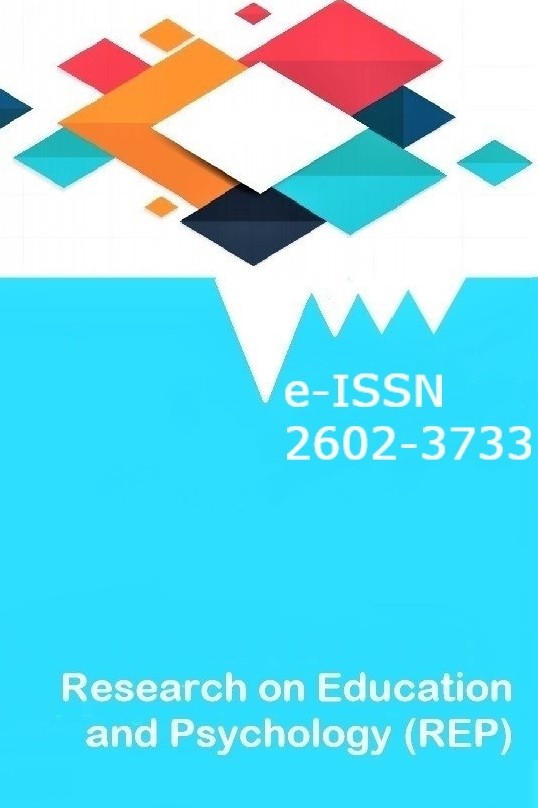Where in Musicotherapy Should Music Educators Be?
Where in Musicotherapy Should Music Educators Be?
Education has been developing since the day man originated as one of the basic requirements for each field and training each individual who has entered social life by teaching the requirements in this life, education furnishes them with a chance to be a part of the society. On the other hand, there are numerous people in this social life facing various difficulties every day either innate or acquired and teachers are those who encounter such people most frequently. The fact that music educators lack training in therapy is a significant deficiency and how much and in what way should therapy be in music education and how much and in what way should music educators be involved in the process? How can appropriate studies be achieved without mixing education with therapy and by directing those in need of therapy to learn what kind of a therapy they need? In this study, what a music educator can contribute to and in what cases s/he can be of help are dealt with as well as analysing the requirements of musicotherapy with an educator’s perspective to enable music educators to get acquainted with and interested in this area
Keywords:
Music therapy Music education Teachers,
___
- Abeles, F. H., Hoffer, C. R., Klotman, R. H. (1994). Foundations of music education. New York, U.S.A.: Macmillan Publissing.
- Ak, A. Ş. (2013). Avrupa ve Türk İslam medeniyetinde müzikle tedavi tarihi gelişimi ve uygulamaları [Historical development and applications of music therapy in European and Turkish Islamic civilization]. 2. Ed. İstanbul, Turkey: Ötüken Neşriyat A.Ş.
- Atabek, E. (2011). Müzik seni çağırıyor [Music is calling you]. İstanbul, Turkey: Doğuş Grubu İletişim Yay. ve Tic. A.Ş.
- Bailey, D. (1998). Doğaçlama [Improvisation]. (A. Bucak, Trans.) İstanbul, Turkey: Pan Yay.
- Bruscia, E. K. (2016). Müzik terapiyi tanımlamak [Defining music therapy]. (B.U. Çifdalöz, Trans.) İstanbul, Turkey: Nobel Yaşam.
- Çoban, A. (2005). Müzikterapi ruh sağlığı için müzikle tedavi [Music theraphy music fot mental health]. İstanbul, Turkey: Timaş Yay.
- Duceurneau, G. (2016). Müzik terapisi ilkeleri [Music therapy principles]. (A. Özyıldız, Trans., B. Uçaner Trans Eds.) Ankara, Turkey: Nobel Akademik yayıncılık Ltd. Şti.
- Duman, B. (2007). Beyin temelli öğrenme [Brain-based learning]. Ankara, Turkey: Pegem A Yay.
- Güler, N. (2008). Müzikle çocuk eğitimi [Child education with music]. İstanbul, Turkey: Hepsi Çocuk Yay.
- İbn Sina (2013). Musiki [Music]. (A. H. Turabi, Trans.) 2.Ed. İstanbul, Turkey: Litera Yay.
- Levıtın, D. J. (2006). Müziğin etkisindeki beyin bir saplantının bilimsel incelemesi [Scientific study of a brain obsession influenced by music]. (A. S. Çulhaoğlu,Trans.) İstanbul,Turkey: Pagasus Yay.
- M.E.B. (2013). Özel Eğitim Uygulama Merkezi I.ve II. kademe eğitim programı-otistik çocuklar için [Special Education Application Center, I and II graduation training program for autistic children]. Özel Eğitim ve Rehberlik Hizmetleri Müdürlüğü, Ankara, Turkey: M.E.B.Yay.
- Öke, M. K. (2012). Aşkla dans [Dance with love]. İstanbul: İlgi Kültür Sanat Yay.
- Öner, A. K. (2006). Müziğin öğrenme güçlüğü çeken çocukların duyarlılıklarına etkisi [Impact of music on sensitivity of children with learning disabilities] (Master’s thesis, Selçuk University, Konya, Turkey). Retrieved from https://tez.yok.gov.tr/UlusalTezMerkezi/
- Özbey, Ç. (2005). Otizm ve otistik çocukların eğitimi-yalnızlık ülkesine yolculuk [Autism and education of autistic children-journey to the land of loneliness]. İstanbul, Turkey: İnkılâp Kitabevi Yay. San.ve Tic. A.Ş.
- Özbey, Ç. (2009). Özel çocuklar ve terapi yöntemleri [Special children and therapy methods]. İstanbul, Turkey: İnkılâp Kitabevi Yay. San.ve Tic. A.Ş.
- Uçan, A. (1994). Müzik eğitimi, temel kavramlar-ilkeler-yaklaşımlar [Music education, basic consepts- principles-aproaches]. Ankara, Turkey: Müzik Ansiklopedisi Yay.
- Yayın Aralığı: Yılda 4 Sayı
- Başlangıç: 2017
- Yayıncı: Bülent DİLMAÇ
Sayıdaki Diğer Makaleler
Where in Musicotherapy Should Music Educators Be?
